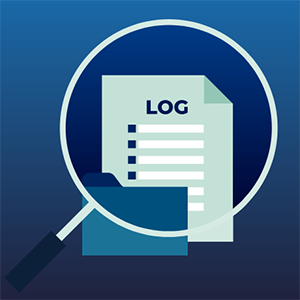 Periodically I’ve had auditors come to me and say “can you tell me what this user on this system did between such-and-such dates/times” and my answer is usually no. By default, Linux systems don’t log this info. But they can.
Periodically I’ve had auditors come to me and say “can you tell me what this user on this system did between such-and-such dates/times” and my answer is usually no. By default, Linux systems don’t log this info. But they can.
In this tutorial, I’ll show you how to use auditd, which is a daemon you can enable to capture every command entered.
There is one big disclaimer: a user with root can always hide his tracks. There are a couple techniques you can use to minimize this, such as using chattr (or *BSD’s securelevel) to set logs to append-only and echoing your logs to a different server. But in general, root access allows a cunning attacker to hide his tracks.
To setup auditing, you’ll need the auditd package. On Debian, to install this package, type
apt-get install auditd
Next, turn on auditing. There are many ways to filter what you want to audit but we’ll keep it simple here and audit all commands:
# auditctl -a exit,always -F arch=b32 -S execve -k allcmds # auditctl -a exit,always -F arch=b64 -S execve -k allcmds
These commands only differ in the arch= specification – one for 32-bit syscalls and one for 64-bit.
Now you can use ausearch (audit search) to see what commands have been issued.
ausearch -k allcmds
For example, immediately after the two auditctl commands, I did a “ps -ef”. Here is what the audit record looks like:
time->Tue Oct 5 15:33:34 2021 type=PROCTITLE msg=audit(1633473214.211:33): proctitle=7073002D6566 type=PATH msg=audit(1633473214.211:33): item=1 name="/lib64/ld-linux-x86-64.so.2" inode=1441854 dev=09:00 mode=0100755 ouid=0 ogid=0 rdev=00:00 nametype=NORMAL type=PATH msg=audit(1633473214.211:33): item=0 name="/bin/ps" inode=11010174 dev=09:00 mode=0100755 ouid=0 ogid=0 rdev=00:00 nametype=NORMAL type=CWD msg=audit(1633473214.211:33): cwd="/root" type=EXECVE msg=audit(1633473214.211:33): argc=2 a0="ps" a1="-ef" type=SYSCALL msg=audit(1633473214.211:33): arch=c000003e syscall=59 success=yes exit=0 a0=edf6e8 a1=eca708 a2=fb7008 a3=59a items=2 ppid=17403 pid=18676 auid=1015 uid=0 gid=0 euid=0 suid=0 fsuid=0 egid=0 sgid=0 fsgid=0 tty=pts0 ses=2532 comm="ps" exe="/bin/ps" key="allcmds" ----
You can see that the command entered was /bin/ps with the argument -ef. Interestingly, when I typed that ausearch command, the next command in the audit dump was a record for the ausearch command itself. An audit record was created before the ausearch command itself was run.
If you want to audit only a specific user, there are two approaches. You could audit all users and then search for only that user, like this:
ausearch -ue <user's uid>
Or you could setup an auditctl entry for just that user:
auditctl -a exit,always -F arch=b64 -F euid=X -S execve -k root-cmds auditctl -a exit,always -F arch=b32 -F euid=X -S execve -k root-cmds
(where X is the uid)
To setup auditing permanently, edit /etc/audit/rules.d/audit.rules and add your rules in the same format as auditctl.
-a exit,always -F arch=b32 -S execve -k allcmds -a exit,always -F arch=b64 -S execve -k allcmds
If you want to list active rules, use auditctl -l:
# auditctl -l -a always,exit -F arch=b32 -S execve -F key=allcmds -a always,exit -F arch=b64 -S execve -F key=allcmds
Restarting auditd will erase any rules that are active, though the /etc/audit/rules will be processed on startup. If you wanted to delete all rules immediately, you could type
auditctl -D
There are a ton of filtering options, both for what to capture and what to search for. Consult the auditctl(8) and ausearch(8) man pages.























That was an interesting article, I’m going to play around with that. Curious if it captures crons too, etc.
This is great! I always use.
$history command to check system history.